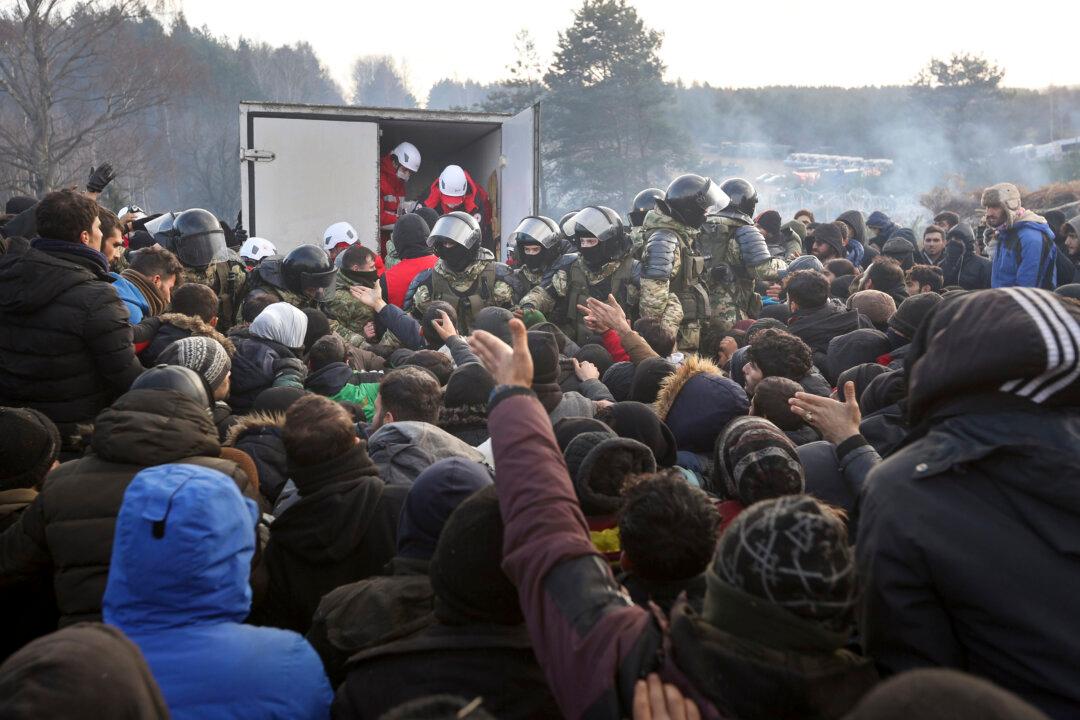WARSAW, Poland—Polish police said Saturday that the body of a young Syrian man was found in the woods near the border with Belarus, the latest victim in a political standoff at the European Union’s eastern border.
The regime in Minsk has for months been encouraging illegal migration across its border into the EU nations of Poland, Lithuania, and Latvia. All three countries are reinforcing their frontiers, seeking to block the newly opened migration route, and the situation is growing more dangerous as winter approaches.





